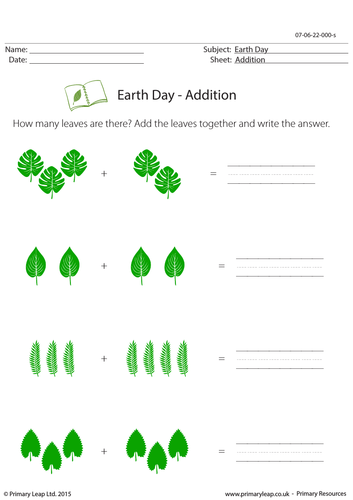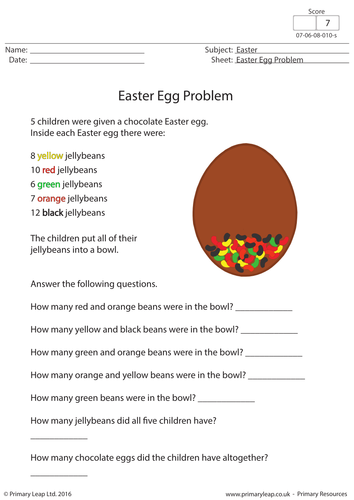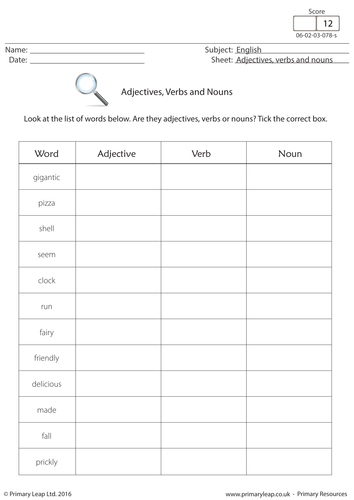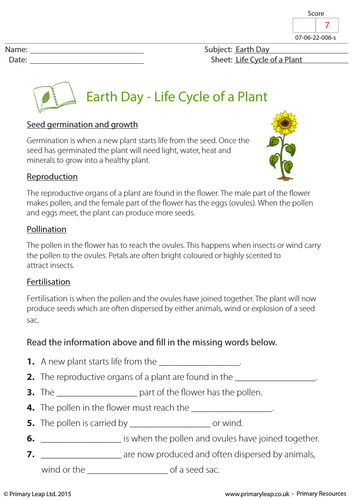560Uploads
453k+Views
210k+Downloads
All resources

Reading Comprehension - Christmas in Australia
This worksheet was created by Lauren Savage @ Primary Leap
What happens in Australia at Christmas? What is the weather like? Students are asked to read the text and answer the study questions.

Who Do We Remember On Remembrance Day?
We celebrate Remembrance Day on the 11th November. We remember the sacrifices of members of the armed forces and civilians in times of war, especially since the First World War. Students read through the passage and then answer the accompanying study questions.

Comparative and Superlative Adjectives
Students are asked to read the sentences and fill in the correct form of adjective. This worksheet was created by primaryleap.co.uk

Fractions and Decimals Year 4 (3)
This worksheet was created by Lauren Savage @ Primary Leap
Fractions and decimals represent the same things: numbers that are not whole numbers. Students are asked to convert decimals into fractions, then fractions into decimals, and then to circle the largest amount in each pair.

Recognising Fractions 1
This worksheet was created by Primary Leap
A KS2 maths worksheet to aid the teaching of recognising fractions in shapes.

Research Activity - Hanukkah
This worksheet was created by Lauren Savage @ Primary Leap
Hanukkah is the Jewish Festival of Lights and lasts for eight days. It usually falls in late November or December. Jewish people celebrate Hanukkah to commemorate the Miracle of the Oil. Here is a research activity for students to complete.

Bar Modelling - 2 xtable
This worksheet was created by Primary Leap
Bar models can be used to solve different kinds of multiplication. Students answer these 2x table questions as quickly as possible.
Additional worksheets, lesson plans, and interactive activities are available on Primary Leap.

Making Inferences from Pictures - Halloween Resource
Students are asked to write 5 inferences they can make about the picture.
Additional worksheets, lesson plans, and interactive activities are available on Primary Leap.

Astronomy - Fact or Opinion?
A fact is a thing that is known or proved to be true. An opinion is a belief, judgment, or way of thinking about something. Students read the sentences about astronomy and write fact or opinion on the line.
There are 12 sentences included in this worksheet.
Find more resources at Primary Leap

Common Exception Words 1
Common exception words are ‘tricky words’ to read. Some exception words are used very frequently, which is why children should start reading and writing them at an early age. This English resource helps students practise reading and writing common exception words. They are asked to read the word and use it in a sentence.
Find more resources at Primary Leap

Science Resource: Earth Day Quiz
This quiz about the Earth will put student’s knowledge to the test. Students are asked to answer a range of questions on topics such as rocks, deserts, oceans, mountains, gas, volcanoes and more.
This resource was created by Primary Leap

Maths Resource KS1 - Easter Egg Problem
This addition exercise asks students to read the information and answer the questions that follow. This worksheet was created by primaryleap.co.uk

Circle the Contractions - English Resource
A contraction is a word made by shortening and combining two words. Words like can’t (can + not) and don’t (do + not) are contractions. Students read each sentence and circle the contraction in each sentence.

Reading Comprehension - Alexander Graham Bell
This reading comprehension includes some interesting facts about the famous scientist and inventor, Alexander Graham Bell. Students read through the text and answer the accompanying questions. Created by Lauren Savage @ Primary Leap

Reading Comprehension - Why Do We Have Remembrance Day?
Why do you think a two minutes silence is held on Remembrance Day? What was Remembrance Day formerly known as? Students read through the text and answer the accompanying study questions.
Find more resources at Primary Leap

Adjectives, Verbs and Nouns
Look at the list of words below. Are they adjectives, verbs or nouns? Students are asked to tick the correct box.

Word Search Activity - Rosa Parks
Students try and find the words relating to Rosa Parks hidden in the word search grid as part of their studies on this inspirational woman. This worksheet was created by Lauren Savage @ Primary Leap

Equivalent Fractions 3
This worksheet was created by Primary Leap
We can make equivalent fractions by multiplying or dividing both top and bottom by the same amount. Students are asked to firstly complete the equivalent fraction chains and then complete the equivalent fractions.

English Worksheet - All or Every?
Students choose ‘all’ or ‘every’ to complete each sentence and then write 2 sentences of their own. This resource will help to improve a child’s English skills. Find more resources at Primary Leap

KS2 Science: Earth Day - Life Cycle of a Plant
This worksheet familiarises students with the life cycle of a plant from seed germination to fertilisation. Students read the text and answer the study questions.
This worksheet was created by Primary Leap




















